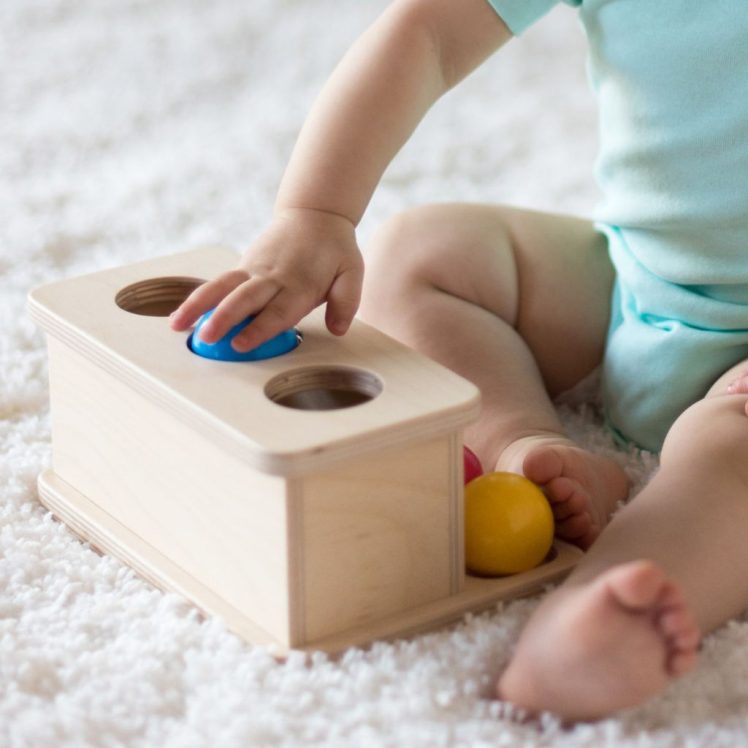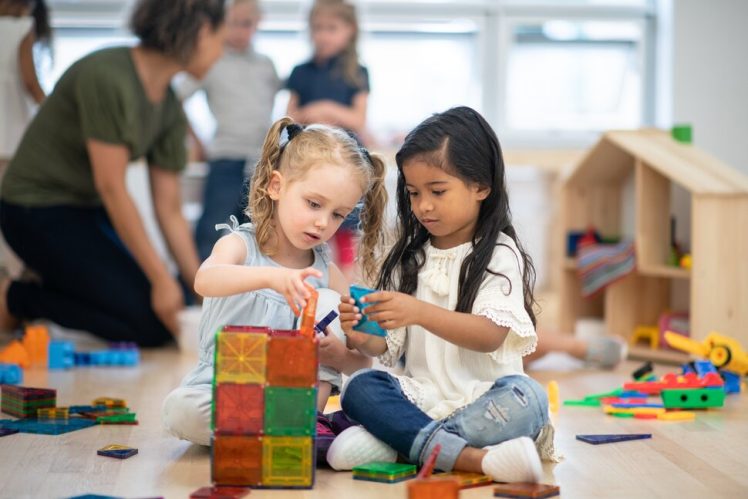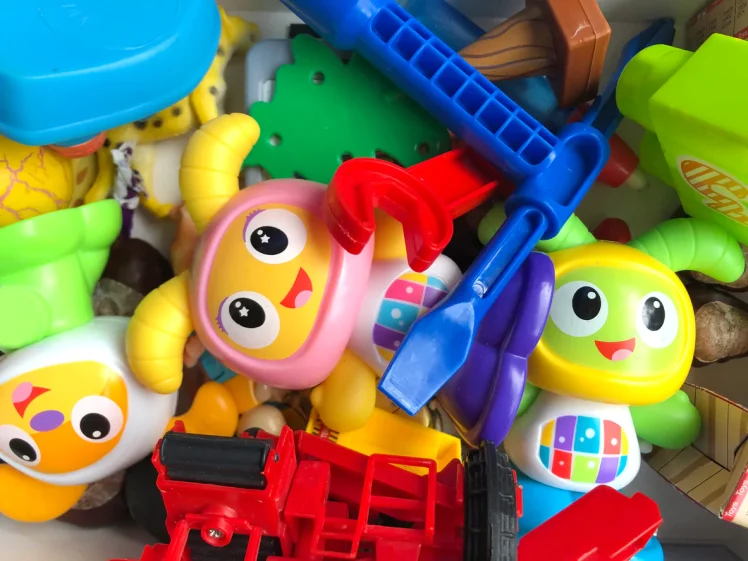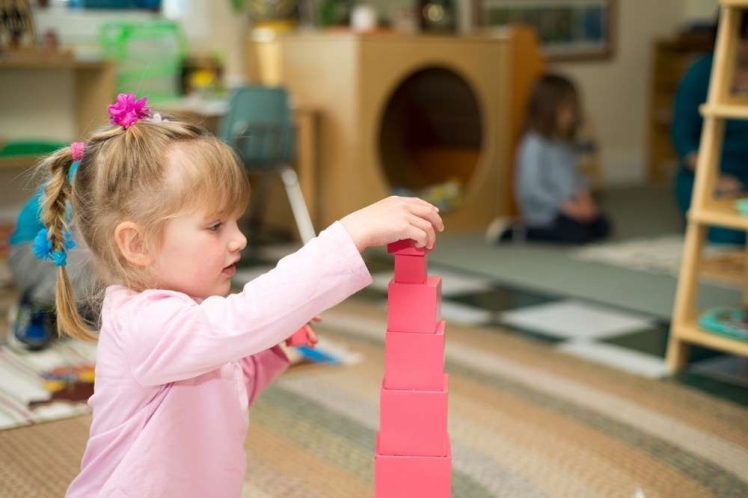What Is The Difference Between Montessori And Non-Montessori Toys?

A lot has been said about the benefits of Montessori education, but what are the key features that set it apart from traditional schooling? And more importantly, how do these principles translate to the world of toys?
Montessori education has since become one of the most popular approaches to childcare and teaching, with schools worldwide using her methods. But what is so special about Montessori toys? Are they that different from traditional (or non-Montessori) toys?
We will look at Montessori toys and compare them to regular ones. We’ll also discuss the benefits of using Montessori toys in your home or classroom and focus on how each approach can help children learn and develop. If you want more information on these toys, check out Cubos for Montessori Toys Canada.
What Is Montessori Education?

Source: usnews.com
This is a question that parents, educators, and students have asked for years. It is based on the philosophy of Dr. Maria Montessori, who believed that all children have the potential to be successful in life if given the right environment and opportunities.
Montessori education focuses on individualized instruction and hands-on learning experiences. Students are encouraged to work at their own pace and to follow their interests. Teachers act as guides rather than lecturers and provide materials that allow students to explore concepts in depth.
It is a type of early childhood education that emphasizes hands-on learning and creativity. Children are taught through play, which helps them develop problem-solving skills and strengthens their attention spans. Montessori educators believe that children learn best when they can explore their environment independently rather than being confined to a classroom setting. This approach to teaching has proven to be successful in developing critical thinking skills and promoting creativity.
Montessori education aims to help each child reach their full potential. This type of education has proven successful with children of all abilities and backgrounds. If you are looking for an alternative to traditional schooling, Montessori might be the right choice for your family.
What Are Montessori Toys?
In a word, they are unique. Unlike traditional toys, it is designed to promote learning and development in young children. They are often made of natural materials like wood or cloth, encouraging hands-on exploration and discovery.
It can be used in various ways, depending on the child’s age and stage of development. For example, simple blocks teach basic concepts like shapes and colors. More advanced puzzles and games can help older children develop problem-solving skills.
The best thing is that children of all ages can enjoy them. Whether your child is just starting to explore the world around them or is already well on their way to becoming a critical thinker, there’s a Montessori toy that will help them along the way.
What Are Non-Montessori Toys?

Source: themontessoriroom.com
Non-Montessori toys don’t follow the traditional Montessori educational model, which focuses on hand-eye coordination and problem-solving. Toys that fall into this category typically involve physical activity or manipulation rather than cognitive development. It can be used for playtime, learning, or both – they’re designed to provide children with various experiences and opportunities. They can also be more affordable than traditional games, making them a good option for families on a budget.
You can find it in many different price ranges and styles, so it’s essential to find one that will fit your child’s interests and needs. Some popular categories include construction sets, action figures/dolls, vehicles/trucks/planes, puzzles/game boards, building blocks/cubes, and kitchen items.
There are no hard and fast rules about what counts as a non-Montessori toy. Some parents prefer to steer clear of electronic toys, while others find that their children enjoy them just as much as any other toy. Ultimately, it’s up to your preferences to decide what’s best for your kids.
Difference Between Montessori And Non-Montessori Toys
There are a lot of talks these days about Montessori toys and materials, but what exactly are they? And what makes them unique from “regular” toys, and how are they different from them?
At its simplest, a Montessori toy is designed to promote self-directed learning and exploration. That means it’s open-ended and encourages kids to use their imagination rather than being focused on a single specific goal or outcome.
Non-Montessori toys, on the other hand, are typically more didactic. They often have just one right way to be played with, and their primary purpose is to teach kids a particular skill or concept.
So which type of toy is better? There’s no easy answer to that question. It depends on your child’s individual personality and preferences. Some kids thrive with lots of structure and guidance, while others prefer to be given the freedom to experiment and figure things out for themselves. Ultimately, the best approach is probably a mix of both toys – giving your child various experiences and letting them choose what works best for them.
How To Choose The Right Toy For Your Children?

Source: kidsinthehouse.com
When choosing a suitable toy for your children, it is vital to consider the benefits of each type of toy. Montessori toys are designed to promote independent learning and exploration in children. Traditional games, on the other hand, are typically more focused on entertaining children or helping them develop specific skills.
Montessori toys are usually made of natural materials and are designed to be open-ended, allowing children to use their imagination and creativity to play. Traditional games, on the other hand, are often made of plastic and are designed to be more focused and educational.
These are also typically more expensive than non-Montessori toys. However, they are often worth the investment as they can help children develop a love for learning.
What Are Some Popular Montessori Toys?
You can use several popular games that can be used to help children learn and develop. One of the most popular is the Montessori ball, a small, lightweight ball that little hands can easily manipulate. Other popular toys include the abacus, blocks, and puzzles. These items are designed to help children develop fine motor skills, problem-solving abilities, and concentration.
Conclusion
Choosing the suitable toy for your children is essential, as the wrong one can negatively affect their development. Montessori and non-Montessori toys each have their benefits, so it’s vital to do your research before making a purchase. Ultimately, deciding which type of toy to buy is up to you as a parent, but considering both options is a good place to start.





